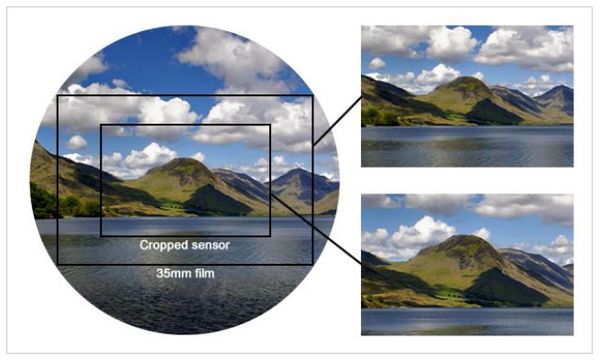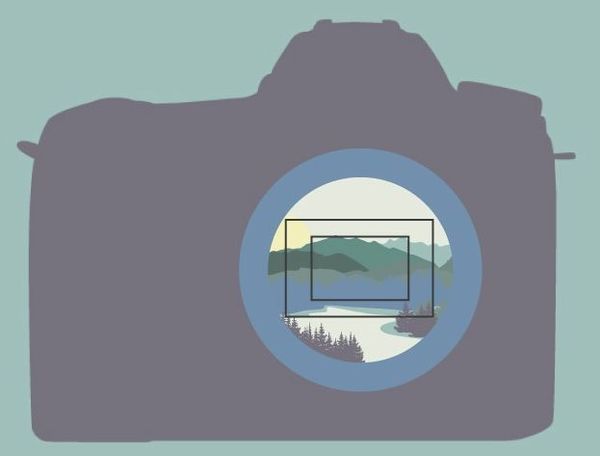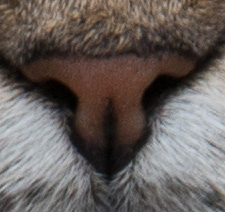CROP SENSOR - I don't get it
Feb 16, 2019 06:26:07 #
I have a Canon 7D which has an APS-C camera sensor and gives a crop factor of 1.6. Some literature I read says that as a consequence, a standard lens will provide a perceived zoom. So for example, if I have a 100mm lens, the camera sensor will provide the equivalent to a 160mm lens (100x1.6 = 160 mm). Other literature just says that it just provides a reduced image from that which a full sensor would provide. In other words a reduced image.
I can't see how a standard lens will provide a perceived zoom. I think it will just in essence crop the picture that would be provided by a standard lens. A lens will just do what it is designed to do and cannot zoom beyond its normal range ... or have I got it wrong?
In short - help!!!
I can't see how a standard lens will provide a perceived zoom. I think it will just in essence crop the picture that would be provided by a standard lens. A lens will just do what it is designed to do and cannot zoom beyond its normal range ... or have I got it wrong?
In short - help!!!
Feb 16, 2019 06:34:57 #
These two sources may help you grasp this concept of crop factor:
https://en.wikipedia.org/wiki/Crop_factor
https://www.photographymad.com/pages/view/crop-factor-explained
https://en.wikipedia.org/wiki/Crop_factor
https://www.photographymad.com/pages/view/crop-factor-explained
The hopper wrote:
I have a Canon 7D which has an APS-C camera sensor... (show quote)
Feb 16, 2019 06:47:30 #
Anotherview - thanks. Those pages seem to say that in terms a a reference standard i.e. a 35mm film frame, a crop sensor provides a perceived multiplication factor of 1.6 (in my case). However, in terms of any lens fitted to a camera, the lens just does what it is designed to do and there is no innate zoom but rather a crop factor sensor just picks up a portion of what a full frame camera would do. Is that correct??
Feb 16, 2019 06:55:51 #
The hopper wrote:
Anotherview - thanks. Those pages seem to say that in terms a a reference standard i.e. a 35mm film frame, a crop sensor provides a perceived multiplication factor of 1.6 (in my case). However, in terms of any lens fitted to a camera, the lens just does what it is designed to do and there is no innate zoom but rather a crop factor sensor just picks up a portion of what a full frame camera would do. Is that correct??


 Your perception is correct is my opinion.
Your perception is correct is my opinion.Feb 16, 2019 06:56:45 #
The hopper wrote:
I have a Canon 7D which has an APS-C camera sensor... (show quote)
It's really simple. When you take a shot of something, then you open it in post processing, and you "crop" the image, what do you end up with?
An image with only the part that you wanted, filling the frame better than the uncropped image. It looks as if you used a longer focal length lens, but you didn't. Cropping just gave you a narrower field of view and the corresponding impression of having used a longer lens with it's narrower field of view.
This series illustrates an image cropped and cropped tighter in post processing - same image, same lens
Feb 16, 2019 06:59:15 #
The hopper wrote:
I have a Canon 7D which has an APS-C camera sensor... (show quote)
If only camera makers would have made a digital equivalent of the 35mm SLR right off the bat.
These two pictures might help. The larger sensor catches a larger scene, but the details are smaller, and vice versa.


Feb 16, 2019 07:02:18 #
Feb 16, 2019 07:04:07 #
Crop sensor cameras generally have a higher pixel density than full frame cameras. I suppose you would get a pseudo magnification if you look at it that way. The Canon 80D has 24.2 megapixels on a 1.6x crop factor sensor. It would take 62 megapixels on a full frame sensor to have the same pixel density.
Feb 16, 2019 07:08:54 #
The hopper wrote:
I have a Canon 7D which has an APS-C camera sensor... (show quote)
In my opinion, you are over thinking this. You are correct on all counts. A cropped sensor does in camera what you might do in post processing, cropping the photo to a 1.6 value. That would give you a "larger" image than a full frame body would. It seems that the lens is larger, as in your example of a 100mm lens becoming a 160mm lens. Some wildlife photographers prefer a cropped lens, as you will not need a larger lens, thus saving money. And you hit the nail on the head when you stated that the camera sensor will just in essence crop the picture that would be provided by a standard lens.
Feb 16, 2019 07:48:18 #
The hopper wrote:
I have a Canon 7D which has an APS-C camera sensor... (show quote)
It is simply about the angle of view, a full frame sensor provides the full angle of view, so 100mm = about a 20 degree horizontal angle of view, on a crop sensor because the image in the focal plane is larger than the sensor in your camera it will not capture the entire image on the smaller sensor because a portion of image captured is cut off the same lens only captures about a 13 degree horizontal view which is the equivalent of the angle a 160mm lens would display on a full frame sensor.
Feb 16, 2019 08:01:19 #
It sounds to me like you do understand. It's a crop factor not a magnifying factor.
Feb 16, 2019 08:29:43 #
Referencing jerryc41's pictures above-
Take a picture of something with a full frame and print a 4x6 without any size adjustments.
Then take the same picture with a crop sensor from the same place with the same lens and print a 4x6 without any size adjustments.
The perception will be that the crop sensor camera "zoomed in".
The lens did not change or zoom, but the portion of the image captured did change.
The crop sensor is 0.625 the size of the full frame. so a print made the same size as one from a full frame will be (1/.625) or 1.6 times "closer".
Take a picture of something with a full frame and print a 4x6 without any size adjustments.
Then take the same picture with a crop sensor from the same place with the same lens and print a 4x6 without any size adjustments.
The perception will be that the crop sensor camera "zoomed in".
The lens did not change or zoom, but the portion of the image captured did change.
The crop sensor is 0.625 the size of the full frame. so a print made the same size as one from a full frame will be (1/.625) or 1.6 times "closer".
Feb 16, 2019 08:31:39 #
rmorrison1116 wrote:
It sounds to me like you do understand. It's a crop factor not a magnifying factor.
Begs the question: "Do zooms magnify?".
(Magnify: make larger.)
Feb 16, 2019 09:16:14 #
Take 2 images, focused on the same spot. One with a crop sensor, one with a full frame. When viewing on the same monitor or printing on the same size paper, the crop sensor photo will give the appearance of greater magnification because the image has to be enlarged to fill the same space as the FF image. If you were to print both images on papers corresponding to the relative size of the 2 sensors (or corresponding monitors) you would see no difference in magnification, only a difference in the size of the photo view area. Our normal methods of viewing or printing produce an accurate comparison of view area but an inaccurate comparison of magnification.
Edit: If you were to take only the portion of the FF photo that corresponded to the area of the crop sensor and view both on the same monitor/paper both would appear identical as far as magnification. Pixel density could then become an issue, with the crop sensor usually having the advantage.
Edit: If you were to take only the portion of the FF photo that corresponded to the area of the crop sensor and view both on the same monitor/paper both would appear identical as far as magnification. Pixel density could then become an issue, with the crop sensor usually having the advantage.
Feb 16, 2019 09:23:22 #
The hopper wrote:
I have a Canon 7D which has an APS-C camera sensor... (show quote)
I think it's best to forget about crop factor.
Simply learn and see what kind of field of view or angle of view lens or certain focal length would give you on your camera. For example if you put a 100 mm lens on your camera what kind of view would you see in your viewfinder. That's all. Once you know that then if you put a 200mm lens on your camera everything you see in the viewfinder will be twice as big and you would see only a quarter of what you see with the 100mm lens.
That's all. Forget about crop factor. The crop factor is only useful if you are used to the FF cameras. If you never used the FF camera before it's better not knowing the crop factor at all.
If you want to reply, then register here. Registration is free and your account is created instantly, so you can post right away.













